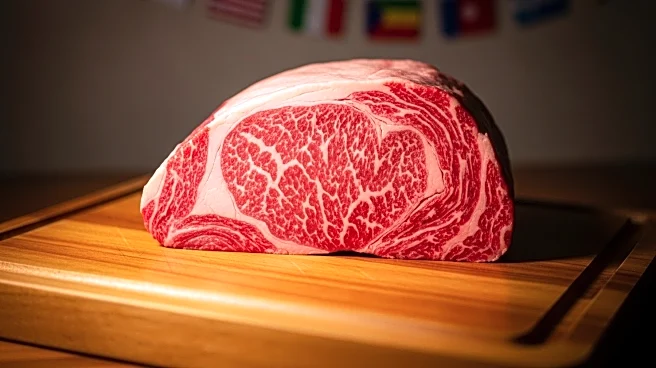What's Happening?
Wesley Batista, a board member of JBS, the world's largest meat-processing company, has highlighted the growing demand for protein in the U.S., which is outpacing domestic production. As a result, the U.S. is increasingly relying on imports to meet consumer needs. The popularity of protein-heavy diets and the influence of GLP-1 drugs are contributing to this trend. Despite being the top beef producer, the U.S. has had to import more beef, particularly from Brazil, due to thinning cattle herds. The situation is exacerbated by tariffs imposed by President Trump, although imports from countries like Australia remain viable.
Why It's Important?
The increased reliance on beef imports has significant implications for the U.S. agricultural and food industries. It highlights the challenges faced by domestic producers in meeting consumer demand amid changing dietary trends and economic factors. The situation may lead to higher beef prices and impact the profitability of U.S. producers. Additionally, the reliance on imports raises questions about food security and the sustainability of domestic production. As the U.S. navigates these challenges, stakeholders may need to consider strategies to boost domestic production and address tariff-related issues.
Beyond the Headlines
The trend towards protein-heavy diets and the impact of GLP-1 drugs reflect broader shifts in consumer health and wellness priorities. This could lead to long-term changes in food production and marketing strategies, as companies adapt to evolving consumer preferences. The situation also raises ethical and environmental considerations regarding the sustainability of increased meat consumption and the impact of imports on local economies.










